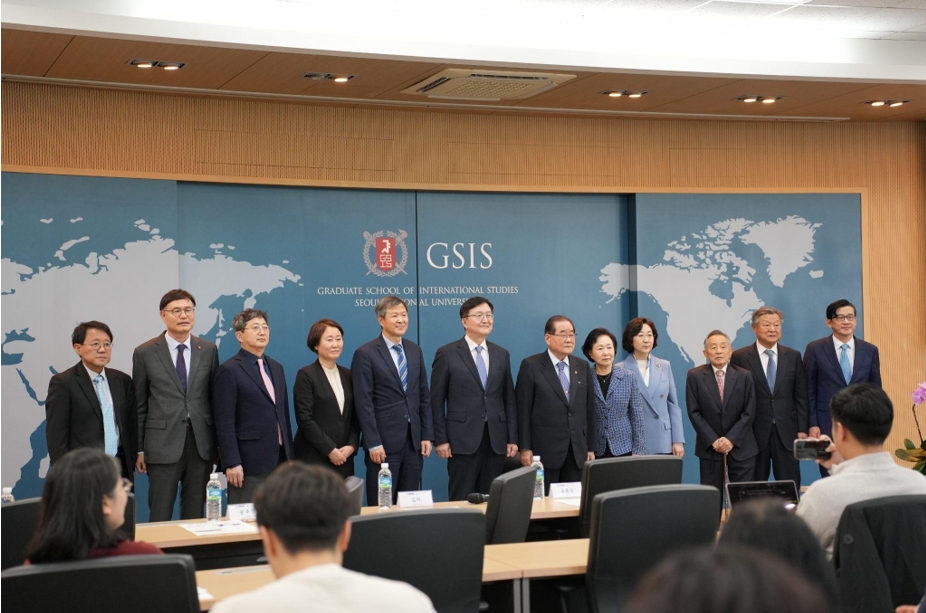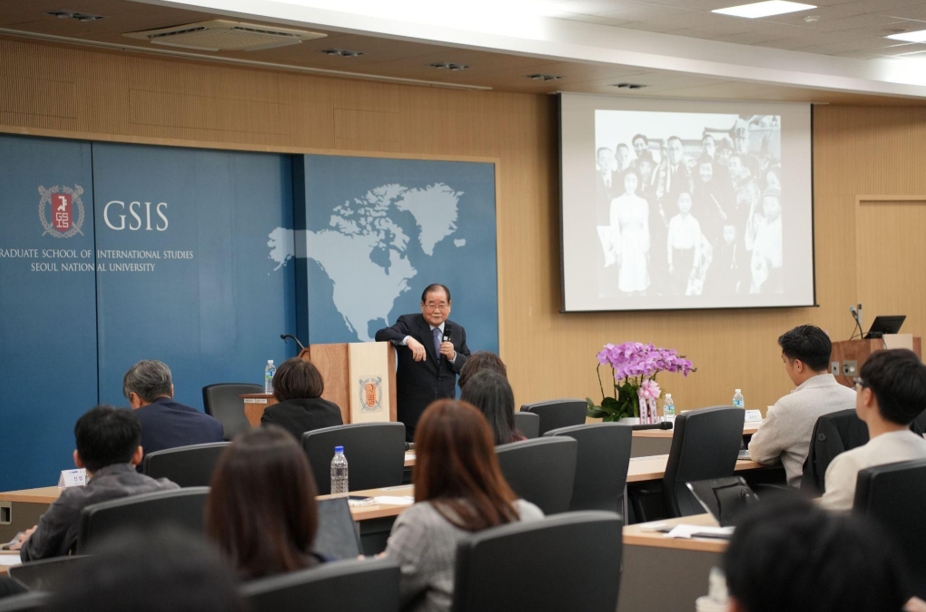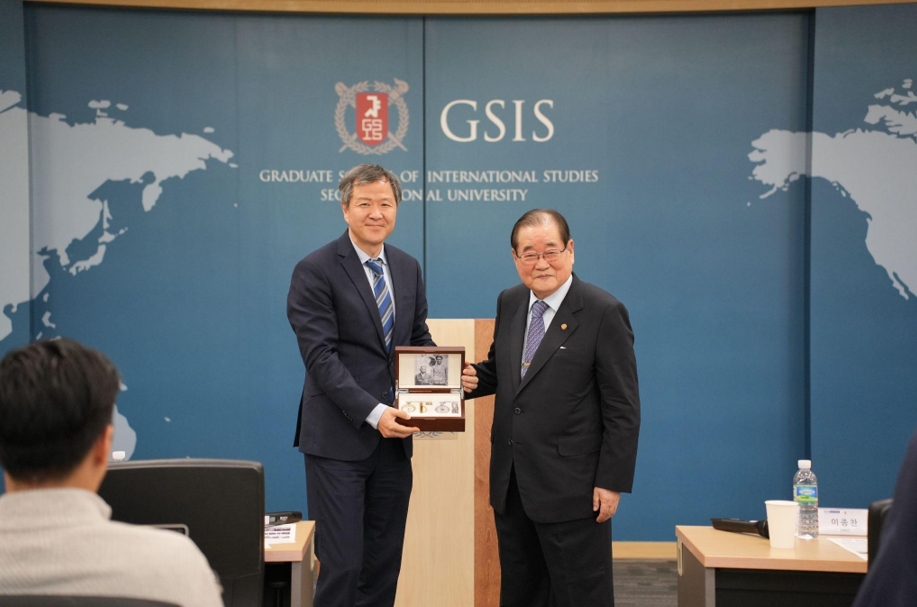“I want our nation to become the most beautiful country in the world. By this, I do not mean that I wish for it to be the most powerful. Having suffered the pain of invasion by another country, I do not want my country to invade others. It is enough if our wealth makes our lives plentiful, and our strength is sufficient to prevent foreign invasions. What I crave beyond measure is the power of a noble culture, because such cultural strength brings us happiness and, in turn, confers happiness upon others.”
These words were spoken by Baekbeom Kim Koo, one of Korea’s most revered independence activists. They reflect a vision of Korea grounded not in conquest or domination, but in cultural integrity, peace, and moral leadership. Inspired by this enduring legacy, Seoul National University’s Graduate School of International Studies (GSIS) has officially launched the Kim Koo Forum—a new academic initiative dedicated to advancing research and dialogue on peace, cultural diplomacy, and Korea’s role on the global stage.
In their congratulatory remarks, SNU President Ryu Hong Lim and GSIS Dean Sheen Seong-Ho both emphasized the Forum’s potential to become a leading platform for international academic exchange on Korean culture and diplomacy. In particular, President Ryu noted that Seoul National University, as a global research institution, is committed to engaging with the Global South and shaping a future-oriented understanding of Korea’s history.

SNU President Ryu Hong Lim (seventh from the right) with Kim Mi (fourth from the right), Chair of the Kim Koo Foundation, and other distinguished guests
The Forum held its inaugural lecture on April 8 to commemorate its launch, featuring Chairman Lee Jong-chan, head of the Heritage of Korean Independence and former Director of the National Intelligence Service. Titled “Baekbeom Kim Koo as I Knew Him,” the lecture offered a deeply personal and historically grounded reflection on Kim Koo’s vision and its relevance in today’s world.

Chairman Lee Jong-Chan of the Heritage of Korean Independence delivering his lecture
In the lecture, Lee offered a nuanced portrait of Kim Koo. He shared personal anecdotes and portrayed him as a statesman guided by conviction, cultural values, and an unwavering commitment to national sovereignty. Kim Koo’s philosophy, Lee emphasized, was rooted in advocacy for peace, moral leadership, and the belief in culture as a source of strength and unity. He also cautioned against recent attempts to distort the historical record, stressing the importance of preserving national memory with scholarly integrity. The overarching message of the lecture stressed the need for a balance between globalisation and national identity.
Lee also spoke about the relationship between Kim Koo and Yun Bong Gil, another important freedom fighter known for his 1932 act of resistance against Japanese officials in Shanghai. He shared an anecdote in which the two exchanged watches prior to Yun’s heroic act and donated a replica of the watch as a commemorative gift to the GSIS.

Dean Sheen Seong-Ho and Chairman Lee Jong-Chan with the commemorative watch
The Kim Koo Forum at SNU builds on an international network that began with the establishment of similar forums at Harvard University, Peking University, and National Taiwan University. Guided by the spirit of on-go-i- ji-sin—learning from the past to understand the present— the Kim Koo Forum at SNU aims to serve as a vibrant platform for critical dialogue on Korea’s diplomatic future. Over the next decade, the Forum will host lectures, seminars, and research projects addressing critical issues related to the Korean Peninsula, East Asian peacebuilding, and Korea’s place in the global community. It will also provide fellowships for emerging scholars and support collaborative research with international partners.
The Kim Koo Foundation has pledged ten years of support for the Forum’s operations for the first time in Korea, made at SNU. An organizing committee, chaired by Professor Park Tae Gyun (Korean Studies Major), has been formed within the GSIS to oversee its activities. This committee includes scholars not only from GSIS but also from the humanities, social sciences, and natural sciences, reflecting the Forum’s interdisciplinary scope.
Supported by the Kim Koo Foundation and the leadership of GSIS, the Forum reaffirms SNU’s commitment to globally engaged scholarship rooted in Korea’s historical experience. By engaging with the values and vision of Kim Koo, the Forum not only commemorates the past but also offers a forward-looking platform for dialogue on peace, culture, and diplomacy. As the Forum grows, it is poised to contribute meaningfully to SNU’s role as a leading institution for academic exchange. Members of the SNU community are warmly encouraged to take part in its upcoming events, research initiatives, and academic conferences.
Written by Hyun Kyung Jung, SNU English Editor, jhyunk@snu.ac.kr

